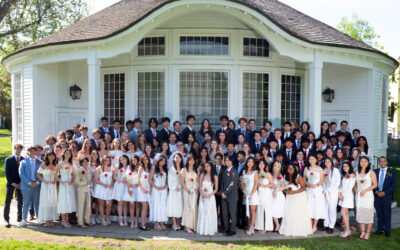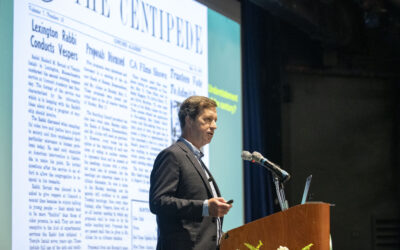by Jeff Desjarlais, LICSW, director of health and student support services
Early on in the shutdown, I was introduced to a strategy to manage and schedule time during quarantine. I’ll admit that I don’t remember the source, as I was listening to the radio while driving back home from Vermont after the state of emergency was declared. I do, however, remember thinking that this was a clever and thoughtful way to divide time and help with emotional well-being. I pulled over and scrawled the “Four M’s” on a piece of paper. The idea was simply this: Each day, you must participate and practice these four M’s, movement, mindfulness, meaningful connection, and mastery.
This seemed like such a simple and straightforward way to stay healthy and grounded and attend to self-care that upon my return to working with students after break I would recommend it often to those having difficulty managing their days. Many struggled. Instead of finding the process helpful and structured, they reported feeling worse when they could not follow through with it every day; it was like every day was a failed New Year’s resolution. My first assumption was that maybe it was just hard for teenagers to do this and thought to myself, “How hard can this be? I’m going to try this so I can share my experience with the students with whom I am working.” It was harder than I thought.
First, let’s review the four pillars of the practice. Movement: Simple, really; some exercise every day such as walking, running, biking, treadmill, or lifting weights. Anything, at least once a day, to get us out of bed and moving. Mindfulness: A little harder. Breathing, yoga, gratitude journal, prayer; something to ground you emotionally during the day. Meaningful connection: Facetime, Zoom, a phone call, even a letter or a card to connect during the day with someone who has meaning in your life. Mastery: Work on some skill or talent like music, writing, drawing, cooking, or gardening — something that engages that part of our brain to create and improve.
I started the week convinced that this was a helpful approach because it was relatively easy. Movement was something I was already doing for myself. I walk 10,000 steps a day. Easy! Then it rained. And rained. A day off became two, then three. The sun returned and so did I, but still…. This was supposed to be the easy part. Mindfulness: I have a morning and bedtime ritual where I remind myself of the things that happened that day for which I am grateful; again, this was easy when I was not thinking about doing it. But then one night my wife and I stayed up to watch SNL at Home and I went to bed late and completely forgot. The cat woke me up early the next morning and before I knew it, I’d forgotten again.
Days slipped by before I re-engaged in the practice. I think that by now you are sensing a pattern!
After reflecting on my process, I’ve decided to add a fifth “M”: Manageable. It’s about the practice as well as the outcome. Being aware that these four things are building blocks to a healthy day or week is the important thing. Practicing them takes time; achieving them is a bonus! This is not a time to be hard on ourselves. It is a time to be honest about what is possible while knowing what is preferable. So now I try to make sure I focus on at least one “M” a day, hopefully two; and on a good day, three or four. This last weekend I was able to get outside and work in the garden, connect with my in-laws and nieces through FaceTime and phone calls, and made time for reflection and gratitude at the end of each day. But I didn’t play the guitar, I did not make it to the Zoom church service, and I did not bake a loaf of bread — but my neighbor did, and left a loaf on my doorstep. That simple act of kindness reminded me we are all doing our best and we do not have to do more than that.


